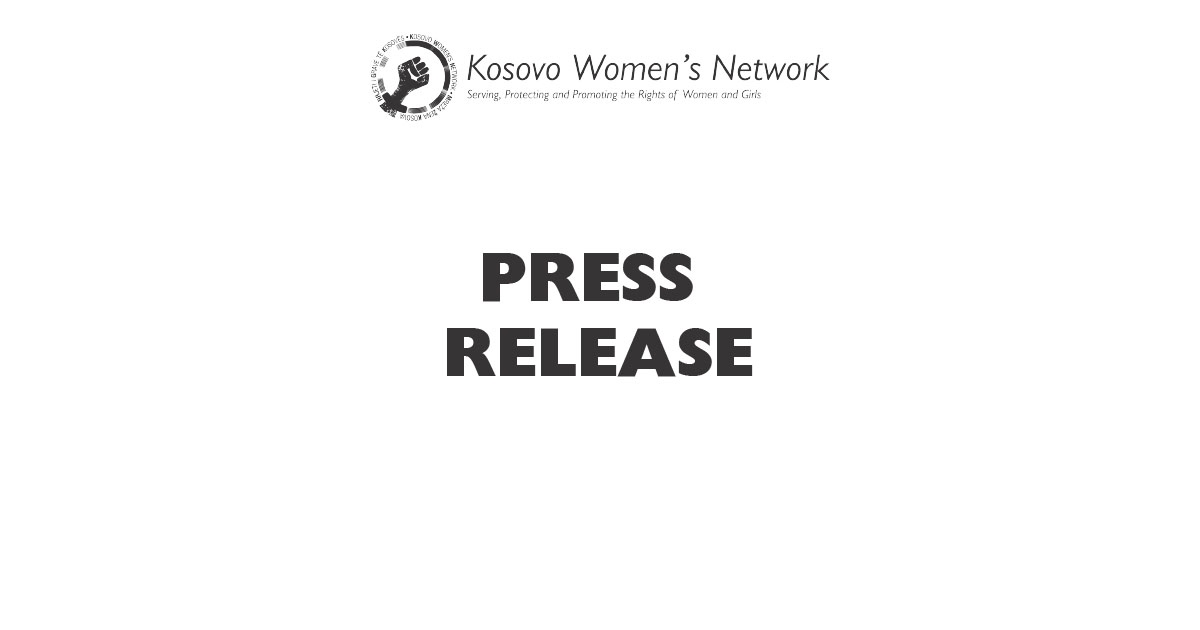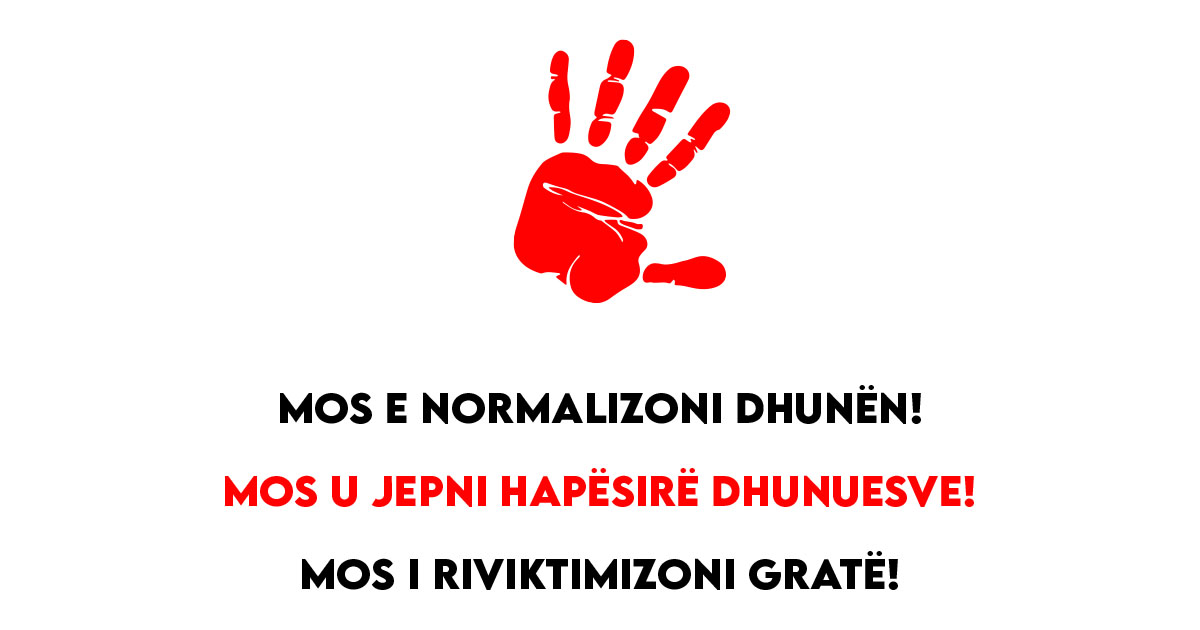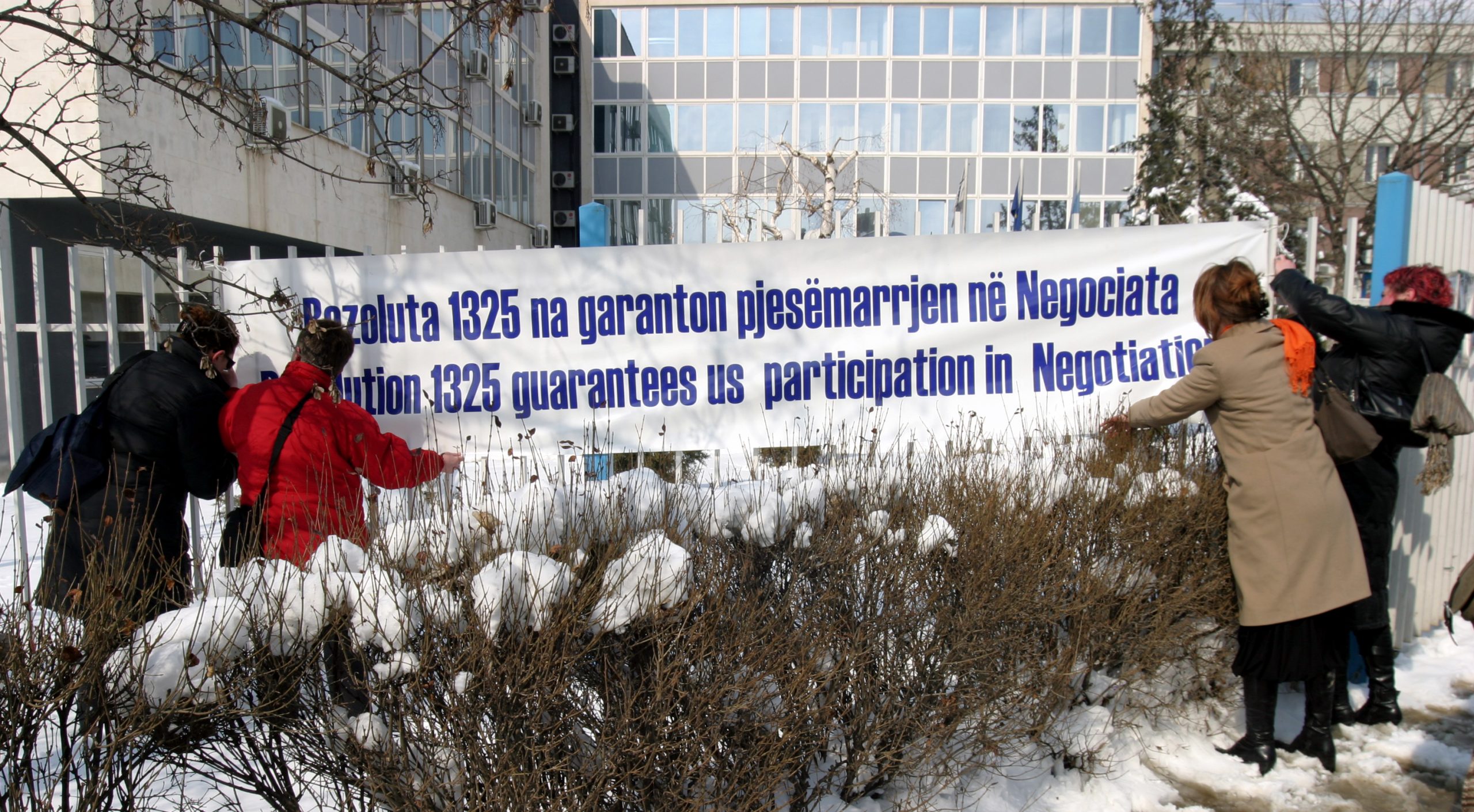At this time of the global COVID-19 pandemic, home is supposed to be the safest place for everyone. However, for people experiencing gender-based violence including domestic violence, social distancing can mean being trapped inside with an abuser. Domestic violence is already a deadly epidemic, where one in three women worldwide experience physical or sexual violence, mostly from an intimate partner. Domestic violence tends to increase during crises, and the COVID-19 pandemic is showing such trends worldwide. In China, there has been a surge in domestic violence cases as millions of people have been under quarantine. Some police stations received as many as three times more reports of domestic violence in February compared to the previous year. Similar trends are seen in the USA where cases in some states have doubled since isolation measures became effective. Such trends are expected in Kosovo as well. While social distancing and self-quarantine are imposed to contain the virus, these may be manipulated to isolate victims from their families and social networks, as part of emotional and psychological violence and controlling behavior by the perpetrators, and may likely result in higher risks of domestic violence, primarily affecting women. Domestic violence is a crime, as stated in Article 248 of the Criminal Code of Kosovo. Domestic violence includes “physical, psychological, sexual or economic violence or mistreatment” of a family member against another family member. It is punishable by a fine and imprisonment. Therefore, the Security and Gender Group (SGG) encourages everyone who hears or suspects domestic violence to report it immediately to the police at: 192. It is our responsibility to report crimes when they occur, and also a civic duty to protect others.Additionally, SGG encourages persons seeking help or counselling related to domestic violence to call the Victim Advocates’ hotline: 0800 11 112. The number is free and operational 24/7, as well as confidential and anonymous. Amid the current crisis, safety, security and access to justice services may be disrupted. SGG calls on relevant actors to prioritize services for prevention and response to gender-based and domestic violence amid the COVID-19 pandemic, ensuring timely protection for those most in need and at risk of violence.Health workers who are part of outbreak response must have a gender sensitive response to disclosures of gender-based violence that could be associated with or exacerbated by the pandemic, in a compassionate and non-judgmental manner. First responders should know to whom they can make referrals for further care or bring into treatment centers to provide care on the spot. Additionally, the relevant authorities should collaborate closely to ensure appropriate testing of persons requiring shelter, towards safeguarding the health of already sheltered women and children. Now more than ever we need to look out for the most vulnerable in our society. We need to be extra aware and vigilant of possible cases of domestic violence. We need to work together to report such cases and to ensure timely access to assistance for persons suffering violence. The Security and Gender Group (SGG) is a multi-stakeholder group, chaired by UN Women. The following signatories are members of SGG and support this public statement: International organizations and Embassies: UN Women, UNFPA, UNHCR, UNICEF, UN-Habitat, EU Office/EUSR, OSCE, EULEX, IOM, UN Mission in Kosovo, and British Embassy in Kosovo. Women’s organizations and NGOs: Kosova Women’s Network, Kosovo Gender Studies Center, Kvinna till Kvinna, Kosova – Women 4 Women, NGO Zensko pravo(Women’s rights), KIPRED, INJECT, Youth Initiative for Human Rights – Kosovo YIHR. Kosovo Institutions:Agency for Gender Equality, Kosovo Police





